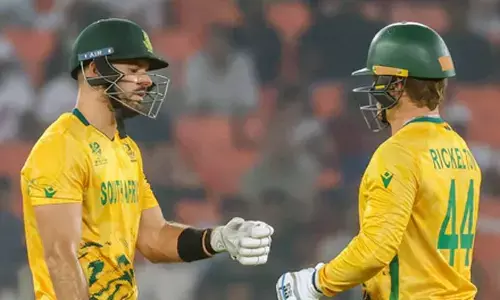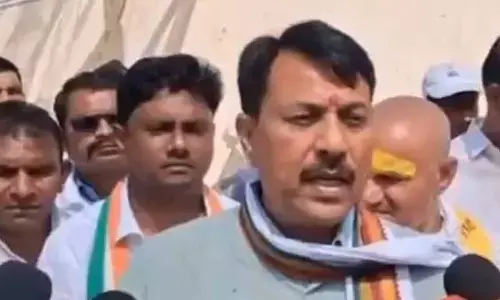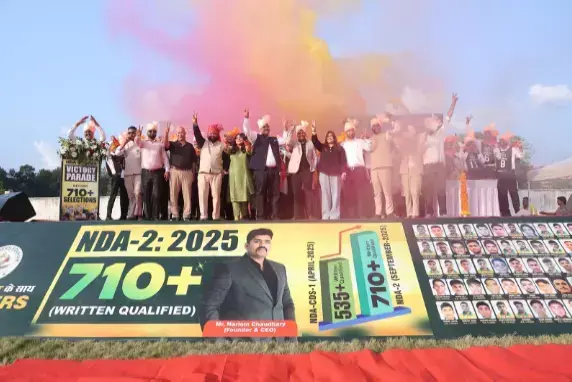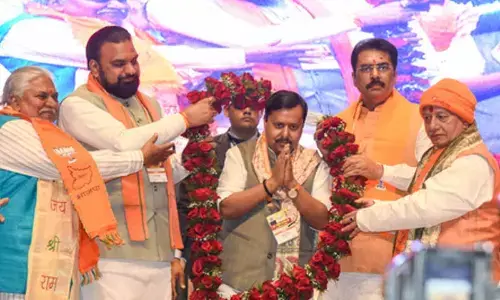MyVoice: Views of our readers 2nd March 2021

MyVoice: Views of our readers 15th March 2021
The words of wisdom expressed in the editorial commentary on "Political opportunism at its best in AP" (1 March) truly reflects the majority public opinion in the state
AP should challenge the Centre
The words of wisdom expressed in the editorial commentary on "Political opportunism at its best in AP" (1 March) truly reflects the majority public opinion in the state. Regrettably there is a strong feeling that certain political parties have not performed their legitimate duty and fallen short of the expectations of the people in these bad days. However, the people are optimistic and ready to fight against the anti- people policies of the insensitive Centre. Hence all the political parties, forgetting their selfish interest, should come to a common platform under the leadership of our dynamic CM, to fight unitedly for the three burning issues -special category status, fuel price rise and jobs and restoration of VSP in the interest of Andhra Pradesh.
Sharada Beri, Kurnool
Take note of the dissenting G-23
The dissenting senior leaders of the Congress veterans, like Ghulam Nabi Azad, Kapil Sibal, Anand Sharma among others, who met in Jammu to send a clear message to Congress high command on the need for more openness in the party functioning and for inclusion of more youngsters to lead the party, without any rigid hold by the Nehru-Gandhi family to be always at the helm in calling the shots.
The writing on the wall is clear as the 'pagdi' colour indicates on the head of senior leaders at the meeting. But, one wonders, why did these prudent leaders take this long to realise that Congress was slipping down the slope, who always supported and defended any nonsense uttered by Rahul Gandhi on the floor of the Parliament.
Thanks to 'Atmanirbhar Bharat' and 'Make in India' concept that ensured meaningful production of advanced armour and missiles within the country with production facilities that were itching to innovate and improve. The inclusion of private partnership in the defence production and equipment had its advantage as a qualitative jump and efficiency could be witnessed in the country. What more is needed to cite as a crowning glory, than the Corona vaccines which are manufactured in the country being administered to people, in a systematic way. The fact China agreeing to back out from the Galwan Valley finger points and Pakistan consenting for a durable ceasefire agreement are definitely as a result of India becoming a more powerful military over the past several years.
K V Raghuram, Wayanad
Privatisation of banks no panacea
Apropos Dr Bharat Jhunjhunwala's article 'Hail public sector bank privatisation', the article is full of half-truths. The author had sought to oversimplify the issues to hail private banks and nail PSBs. He undermines nationalisation of private banks, unmindful of the vast benefits that accrued to vast sections of public in areas of agriculture, SSI, small business and industry. As a professor he doesn't have the ringside view of the reality.
As a banker I have witnessed how the public sector banks have spread across the length and breadth of the country and succeeded in helping the last man in the line. The conditions in 1970s were totally different. Private banks catered only to the needs of rich and elite. Nepotism and favoritism was rampant. Jobs also were mainly given to friends and relatives of directors and senior personnel. Poor and downtrodden had no entry into the banks back then. Bank nationalisation revolutionised the concept of banking and took it to the door of poor and needy. Over the years if we have achieved a strong economy, it is in no small measure due to the dynamic contribution made by PSBs.
Having reached a better position economically and socially, it is not fair to denounce the contribution made by PSBs because of the surge of NPAs in the last few years. It is actually the new generation private banks that have spoiled the loan culture. They thrust the loans aggressively on the prospective borrowers and PSBs had to follow suit to withstand competition.
The borrower was made to feel he was doing a favour to the bank by taking loan and the problem we see today is because of reversal of positions. Banker requesting and borrower obliging. As regards giving away loans to sister concerns, there exists a system of checks and balances in PSBs. It is not that a minister makes a phone call and loan is given. The PSBs have toiled for years and they have a robust network and well established practices. It is not wise to privatise them to meet the current needs. Privatisation is not a panacea for all ills. They suffer from many maladies.
Whatever wrongs are there with PSBs, they are there with private banks as well. We need to have a strong central banking system for effective monitoring and public sector banks can sail safely earning profits and also meeting social objectives. The author's urgent call to FM to rush into the act is grossly misplaced. Sitting in his armchair, he had ignored the harsh realities and carried away more by desire to praise the government rather than sound reasoning.
Vinay Bhushan B, Hyderabad
















